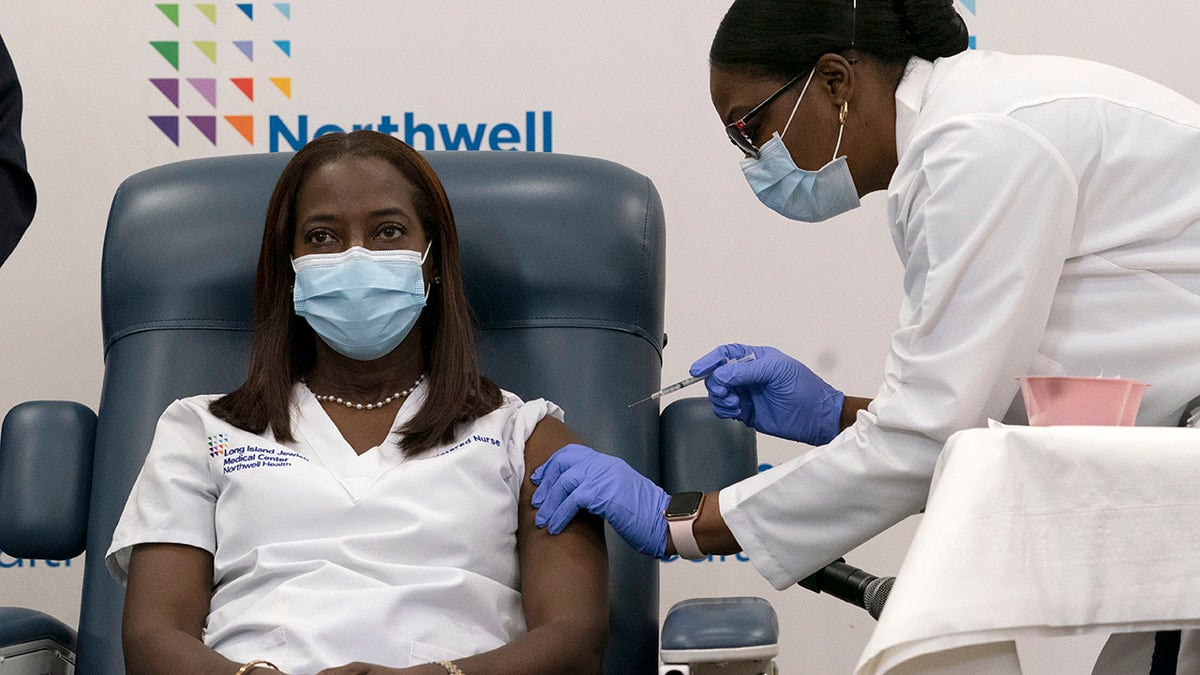Fox News Flash top headlines for December 15
Fox News Flash top headlines are here. Check out what's clicking on Foxnews.com.
Hours after the first health care workers rolled up their sleeves to receive the first dose of Pfizer and BioNTech's two-jab coronavirus vaccine, the nation surpassed 300,000 deaths from the virus, tainting what many in the medical community were heralding as the "beginning of the end" to the pandemic.
Dr. Anthony Fauci, the nation's leading infectious disease expert, called the moment "bittersweet."
Fauci’s comments were prompted by George Stephanopoulos, anchor of ABC’s "Good Morning America," who pointed out 17,000 lives were lost in the last week alone.
“Well, it's you know, it's bittersweet, George, because we are still in a terrible situation with the numbers that you mentioned, the deaths, the hospitalizations, the number of cases,” Fauci said. “And, yet, we're really now starting to see the light at the end of the tunnel that is going to ultimately get us through this.”
LIVE UPDATES: Today's latest COVID-19 headlines

Dr. Anthony Fauci, the nation's leading infectious disease expert, says vaccinations need to happen quickly to reach herd immunity as 75% to 80% of the population vaccinated. (Photo by Drew Angerer/Getty Images)
The first dose of New York’s coronavirus vaccine supply, for instance, went to a health care worker identified as Sandra Lindsay, RN, a critical care nurse at Long Island Jewish Medical Center. Other states also saw their first vaccinations on Monday, including California, Iowa, Connecticut and Florida.

Sandra Lindsay, left, a nurse at Long Island Jewish Medical Center, is inoculated with the Pfizer-BioNTech COVID-19 vaccine by Dr. Michelle Chester, Monday, Dec. 14, 2020, in the Queens borough of New York. (AP Photo/Mark Lennihan, Pool)
“We know we're going to be able to put this behind us, but in the meantime, we still have a struggle ahead of us,” Fauci continued, adding that vaccinations need to happen as quickly as possible until the country reaches herd immunity at about 75% to 80% of the population vaccinated, per his opinion.
FAUCI SAYS BUILDING CORONAVIRUS VACCINE TRUST IS ESSENTIAL: 'WE HAVE A TASK CUT OUT FOR US'
He echoed previous comments that, amid deep vaccine skepticism in the U.S., the speedy development process reflects “extraordinary advances” in science, and also billions of dollars invested in distribution.
Fauci later added that President Trump, Vice President Pence, President-elect Joe Biden and Vice President-elect Kamala Harris should all get vaccinated as soon as possible. He noted that while Trump previously had COVID-19, it is still unclear how long those antibodies offer protection.










































